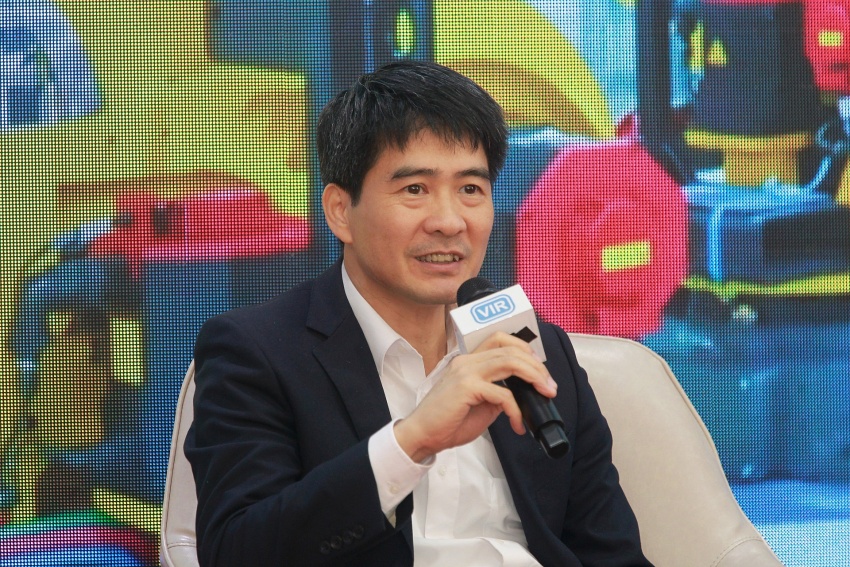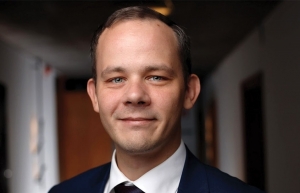Supporting policies needed to fast-track 5G commercialisation
How has 5G been piloted in Vietnam so far, and is the nation ready for commercialisation in 2023?
Up to now, 5G in Vietnam is still in a trial process by Viettel, VNPT, and Mobifone in more than 40 cities and provinces. They are testing different frequency bands from low to mid-band and mmWave band.
From the user side, the first experience of mobile broadband speed, is not too impressive for users because the current 4G speed is meeting the current needs of users in watching movies and television and so on, so the speeds of a few hundred Mb/s or even Gb/s that 5G brings is not a mass market requirement.
 |
| Nguyen Phong Nha, deputy general director of the Ministry of Information and Communications’ Authority of Telecommunications |
For high-density or low-latency user cases, there have been no tests with impressive results and no clear demand from users. This is a reality not only in Vietnam but also in other countries when deploying 5G.
The ability to provide diversified and personalised services according to users’ needs, and the outstanding features of 5G, have been widely disseminated in state agencies and at enterprises in all fields, from underground mining to seaports, and from transportation to healthcare.
Understanding 5G applications will be necessary for customers in making their own requirements in the future. These are the good chances for technology businesses, and startups have many plans and research to develop their businesses based on such possibilities.
The factories and businesses in all sectors know about 5G applications, so now, the trial stage is the right time for cooperating with the telecom’s operators to trial 5G applications in their business. If is successful, it will be implemented immediately.
Previously, the deployment of mobile networks was about coverage and speed of download or upload. Looking back, 2G had almost no trials, and with 3G we also did not test much. Meanwhile, 4G has had testing on 2G and 3G-deployed bands to ensure resource allocation consistent with subscribers and service delivery capacity of the network, and the testing period took place under one year before official deployment.
But 5G trials for mobile network operators this time is not simple. They have to experiment with network organisation, following the NSA model – based on the existing 4G network or SA technology to deploy 5G completely independently. This is really a big issue that needs decisions that greatly affect the investment of network operators.
What are the supporting policies for businesses to encourage them to join 5G commercialisation?
Standards such as national technical regulations on 5G mobile communication base station equipment, on standalone terminal equipment, and on the quality of internet access services on such networks are ready for businesses and protect the interests of users.
The policy of discontinuing technology that is no longer relevant has been promoted and has produced results. This will allow businesses to use the frequencies used for 2G, 3G technologies to deploy 5G. This policy is to help operators reduce the OPEX for the 2G and 3G networks and the 2G and 3G frequencies should be used for 4G and 5G.
Promoting 5G application standards and information security for application services and others is also vital. The government should strengthen the guarantee of medium, low and mmwave frequency bands available for 5G.
At the same time, enterprises should be urged to cooperate in building laboratories, training institutions, professional research institutes, or research centres with universities to boost development of training and technical practice.
Finally, it must welcome the role of international organisations and encourage enterprises to participate in the research and development of 5G standards and next-generation networks.
What international lessons should Vietnam learn to ensure success?
Although 5G technology and the ecosystem have been discussed many times, even the most developed countries are still in the early stages of commercialisation. Following the progress of commercialisation worldwide, there are a few points to note.
The countries with the fastest 5G development in 2022 all spent a large amount of money to expand coverage. Some countries spent big in deployment, such as China, South Korea, Japan, the United States, Spain, and others. However, no country has achieved absolute coverage for the entire population.
For example, Japan aims to develop a 5G network by building a network that covers 97 per cent of Japan's population by 2025, and to build a network that covers 99 per cent of Japan's population by 2030.
According to an Ericsson report in 2022, some 30 per cent of the world's population has coverage and this is expected to reach 85 per cent by 2028. Many network operators are currently implementing NSA architecture in the early stages and plan to migrate it when there is a high demand in user experience.
The growth of 4G subscribers reached a peak at the end of 2022 and began to decline in the coming period to gradually switch to 5G subscribers. The number of 2G/3G subscribers continues to decline, and this suggests that now is the time for the transition to network development.
The majority of countries will choose to apply Open Radio Network technology. This technology helps reduce investment costs by 30 per cent, thus improving competitiveness. To popularise 5G sooner, it is necessary to build a mature application ecosystem from low to high frequency.
 | Ericsson’s commitment to supporting the digital transformation of Vietnam Ericsson has been contributing its technology leadership to digital transformation in Vietnam over the past 30 years. Denis Brunetti, president of Ericsson in Vietnam, Myanmar, Cambodia, and Laos, talked to VIR’s Bich Thuy about his own journey and the plans ahead for the company in Vietnam. |
 | Singapore announces new 5G projects in EV manufacturing, river cleaning Singapore’s Senior Minister of State for Communications and Information Janil Puthucheary on February 28 told the country’s parliament that new applications of 5G technology will be used this year in its three projects on electric vehicle manufacturing, river cleaning and security surveillance. |
 | Sweden leading in green, digital goals Companies are betting on digital transformation and 5G to increase operational efficiency, competitiveness, and sustainability. David Lidén, trade commissioner of Sweden to Vietnam, talked to VIR’s Bich Thuy about the lessons from Sweden in the twin green and digital transition. |
 | Greener, faster, smarter digital plans Various experts have explained how Vietnam can be smarter, greener, and more efficient in its digital overhaul, with an eye towards sustainability. |
What the stars mean:
★ Poor ★ ★ Promising ★★★ Good ★★★★ Very good ★★★★★ Exceptional
 Tag:
Tag:
Themes: Digital Transformation
- PM sets five key tasks to accelerate sci-tech development
- Ho Chi Minh City launches plan for innovation and digital transformation
- Dassault Systèmes and Nvidia to build platform powering virtual twins
- Sci-tech sector sees January revenue growth of 23 per cent
- Advanced semiconductor testing and packaging plant to become operational in 2027
Related Contents
Latest News
More News
- SK Innovation-led consortium wins $2.3 billion LNG project in Nghe An (February 25, 2026 | 07:56)
- THACO opens $70 million manufacturing complex in Danang (February 25, 2026 | 07:54)
- Phu Quoc International Airport expansion approved to meet rising demand (February 24, 2026 | 10:00)
- Bac Giang International Logistics Centre faces land clearance barrier (February 24, 2026 | 08:00)
- Bright prospects abound in European investment (February 19, 2026 | 20:27)
- Internal strengths attest to commitment to progress (February 19, 2026 | 20:13)
- Vietnam, New Zealand seek level-up in ties (February 19, 2026 | 18:06)
- Untapped potential in relations with Indonesia (February 19, 2026 | 17:56)
- German strengths match Vietnamese aspirations (February 19, 2026 | 17:40)
- Kim Long Motor and AOJ Suzhou enter strategic partnership (February 16, 2026 | 13:27)



























 Mobile Version
Mobile Version